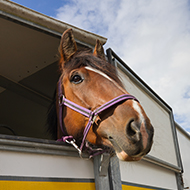
Existing Equine Health Certificates will remain valid until 20 August 2021
New EU Animal Health Regulations (AHR) rules came into force on Wednesday (21 April) affecting horse movements between Britain and the European mainland.
The two key changes are the extension of the current Export Health Certificates (EHCs) for horse movements until August 2021, and the removal of the proposed 30-day isolation period before transportation of horses from the United Kingdom to EU Member States (MSs) and Northern Ireland.
It comes after extensive lobbying by the specially-convened International Horse Sports Confederation (IHSC) Task Force, created in March 2020 to find solutions to the movement of sport horses and thoroughbreds after Brexit.
Welcoming the news, IHSC Task Force chair Dr Göran Akerström commented: “The delay in implementation of the new Export Health Certificates until August will give everyone time to put everything in place and help to minimise the delays for horses travelling between EU Member States and the UK.
"There was already a derogation from the 30-day isolation period in place for competition horses, but this has now been extended to all registered horses and will be warmly welcomed, particularly by the Thoroughbred breeding industry.”
Existing EHCs will remain valid until 20 August 2021, meaning that all current certificates can continue to be used until that time. The new EHCs must be used from 21 August 2021 onwards, but the provision requiring registration of a horse’s precise location while in the EU will be delayed until January 2022.
Horses originating from the UK that are registered with the FEI, a recognised UK organisation or studbook, will no longer need to do a 30-day pre-export isolation, but will instead need to be under veterinary supervision for 30 days. Work on the draft legal provision for digital passports is ongoing with the European Commission.
The IHSC Task Force includes Fédération Equestre Internationale, the European Equestrian Federation, the International Federation of Horseracing Authorities, the International Thoroughbred Breeders Federation and the European Federation of Thoroughbred Breeders Association.



 The latest
The latest